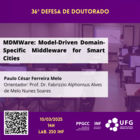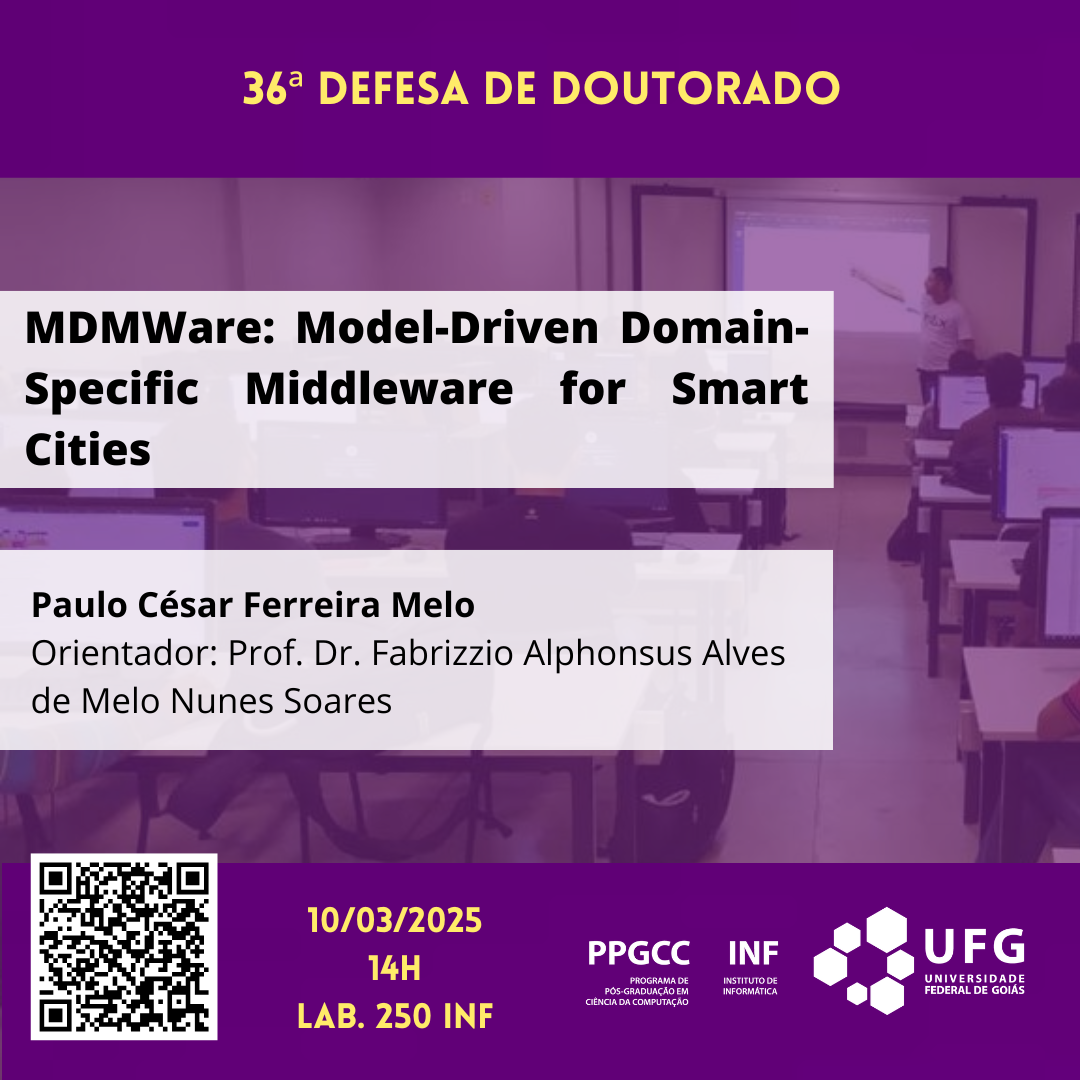
36ª Defesa de Doutorado - MDMWare: Model-Driven Domain-Specific Middleware for Smart Cities - Paulo César Ferreira Melo

36ª Defesa de Doutorado
MDMWare: Model-Driven Domain-Specific Middleware for Smart Cities
Aluno: Paulo César Ferreira Melo
Data: 10/03/2025
Local: Lab. 250 INF e Sala 1 RNP: Aqui!
Horário: 14H
Membros da Banca:
- Prof. Dr. Fábio Moreira Costa (INF/UFG) - ORIENTADOR
- Prof. Dr. Daniel Lucrédio (DC/UFSCar)
- Prof. Dr. Adalberto Ribeiro Sampaio Júnior (Huawei Canada)
- Prof. Dr. Sérgio Teixeira de Carvalho (INF/UFG)
- Prof. Dr. Valdemar Graciano Neto (INF/UFG)
Resumo:
The growing complexity of Smart City environments, characterized by heterogeneous platforms, diverse urban resources, and domain-specific applications, introduces significant challenges in achieving semantic alignment between application requirements and platform capabilities. This misalignment, known as the semantic gap, imposes a substantial cognitive and implementation burden on developers, hindering the effective integration and scalability of smart city solutions. To address this challenge, this thesis proposes MDMWARE, a model-driven domain-specific middleware framework designed to bridge the semantic gap systematically. Leveraging principles of Model-Driven Engineering (MDE), MDMWARE introduces a comprehensive architecture supported by key artifacts: a meta-language to define Domain-Specific Modeling Languages (DSMLs), models for operational semantics (DSK), platform abstractions (PSK), and a Model-Driven Adapter to map domain-specific abstractions to platform-specific capabilities. These components collectively enable seamless semantic alignment, adaptability across diverse domains, and efficient application development. The proposed framework was validated through a demonstrative scenario in the Smart Street Lighting domain, demonstrating its ability to integrate domain and platform semantics effectively. Furthermore, a performance evaluation of MDMWARE was conducted, revealing its ability to manage complex workflows and adapt to varying requirements, albeit with limitations in scalability within high-demand scenarios. The results highlight the framework’s potential to simplify the development and execution of applications across heterogeneous platforms while reducing the cognitive load on developers. This thesis concludes that MDMWARE offers a robust and adaptable solution for mitigating the semantic gap in Smart City environments. By providing structured model-driven abstractions and fostering systematic domain-platform alignment, MDMWARE advances the state of the art in middleware solutions, paving the way for future research and development in scalable, domain-specific smart city applications.

